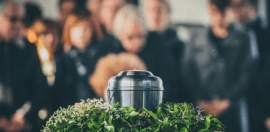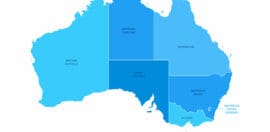What does building a trauma-informed community actually look like?

4 October 2021 at 4:02 pm
Reflecting on another year of advocating for trauma-informed care, in a world faced with uncertainty and threat, Blue Knot Foundation president Dr Cathy Kezelman AM explains the part we all must play in building a trauma-informed community.
What a year we’ve had. With the ongoing COVID-19 pandemic, persistent lockdowns and social isolation, protests and divisions, and a list of political tussles, our world in Australia has been one of uncertainty and threat.
It has also been a time in which sexual abuse, harassment, and domestic and family violence have pushed their way to the front of Australian news. With the advocacy efforts and prominence of survivors such as Grace Tame and Brittany Higgins, abuse and trauma are being spoken about in every corner.
And this has all come off the back of tragic bushfires, floods and, more recently, the largest earthquake the Eastern Seaboard has experienced. Unquestionably, these are unprecedented times in which trauma has been ever-present and unwavering.
We know that “trauma” means experiences that threaten to overwhelm us. But it also means the effects of what those experiences do to us – to our body, our mind, and our nervous systems.
Experiences of threat and harm can cause us to feel unsafe in the world and, importantly, with the people around us. The sad truth is that many of us are not safe – physically or emotionally – and many of us struggle to find a safe place to be, live or sleep. Many Australians have been disrespected or not treated with dignity, and our rights have been ignored or violated.
With COVID-19 only exacerbating a number of life stressors, from economic hardships to the burden of illness and mental ill health, it is undeniable that the need for a “trauma-informed” community has never been more pressing.
But what do we mean by a trauma-informed community?
A trauma-informed community is one in which each of us engages with everyone that we meet with empathy, compassion and understanding for all of humanity. This is especially important for anyone who is living with the serious effects of trauma. A trauma-informed community is one in which no one experiences additional trauma, when seeking help and support.
How do we build one?
Despite the large numbers of people affected by trauma, many of us often fail to consider that a person we meet, speak with, or are supporting may have experienced trauma. Importantly, we could also be grappling with our own trauma without even truly realising it, and this makes us less likely to recognise it and its effects in our own lives and that of others.
Keeping the possibility of trauma in mind means to consider the sensitivities and vulnerabilities of people who may be trauma survivors. It means being respectful and acknowledging. If we are affected by trauma, it means being gentle and forgiving with ourselves.
All of this can be easier said than done sometimes, but it is a process which can happen at its own pace, over time.
Where do we start?
By properly equipping our community with information surrounding trauma and how it can present itself, we will be able to work towards a world that is understanding, supportive and empathetic. Importantly, having a basic understanding of the stress or survival response, and what happens with repeated traumatic stress, can help us to know what to look for in ourselves and in others.
As human beings, we can all be triggered into survival mode – our fight, flight, freeze, and fawn responses when our nervous system goes into overdrive or shuts down. As we build a trauma-informed community, we can share the skills which alert us to our own reactions, and those of others, and use strategies to ground ourselves, soothe our nervous systems, or bring ourselves back into the present.
It helps us pay attention to the way we engage with one another, as well as to “what” we do. It helps us reflect about what may have happened to a person, rather than judging what is “wrong” with them.
As human beings, we can all be vulnerable. If we share our common vulnerability, we can connect in far more meaningful and supportive ways.
The importance of relationships
Positive experiences in our relationships can help us to heal, just as negative experiences can cause us emotional and mental distress. It is important to acknowledge the capacity of positive interactions to be soothing and validating.
This applies to all of us, and especially to all of us who have experiences of trauma. Support is crucial to the process of recovery and positive experiences of relationships can help us to improve our overall well-being. Crucially, this is all relationships – with friends and loved ones, carers and support workers, GPs, and other professionals, across all fields.
The trauma-informed principles of safety, trustworthiness, choice, collaboration, and empowerment, and becoming inclusive and accepting of all, sound simple and, to a degree, they are.
But actually and adequately embedding them, so that we can relate to one another in a trauma-informed way, focuses on improving the ways in which we treat one another as human beings. Unfortunately, this does not always happen, in our connections, engagements and services, and what this can mean is additional trauma and loss of opportunities to heal.
We can all play an integral part in building a trauma-informed community – educating ourselves and those around us is a crucial first step.
To find out more go to www.blueknot.org.au and join us for our national day, Blue Knot Day and our digital Festival of Healing – Building a trauma-informed community.








